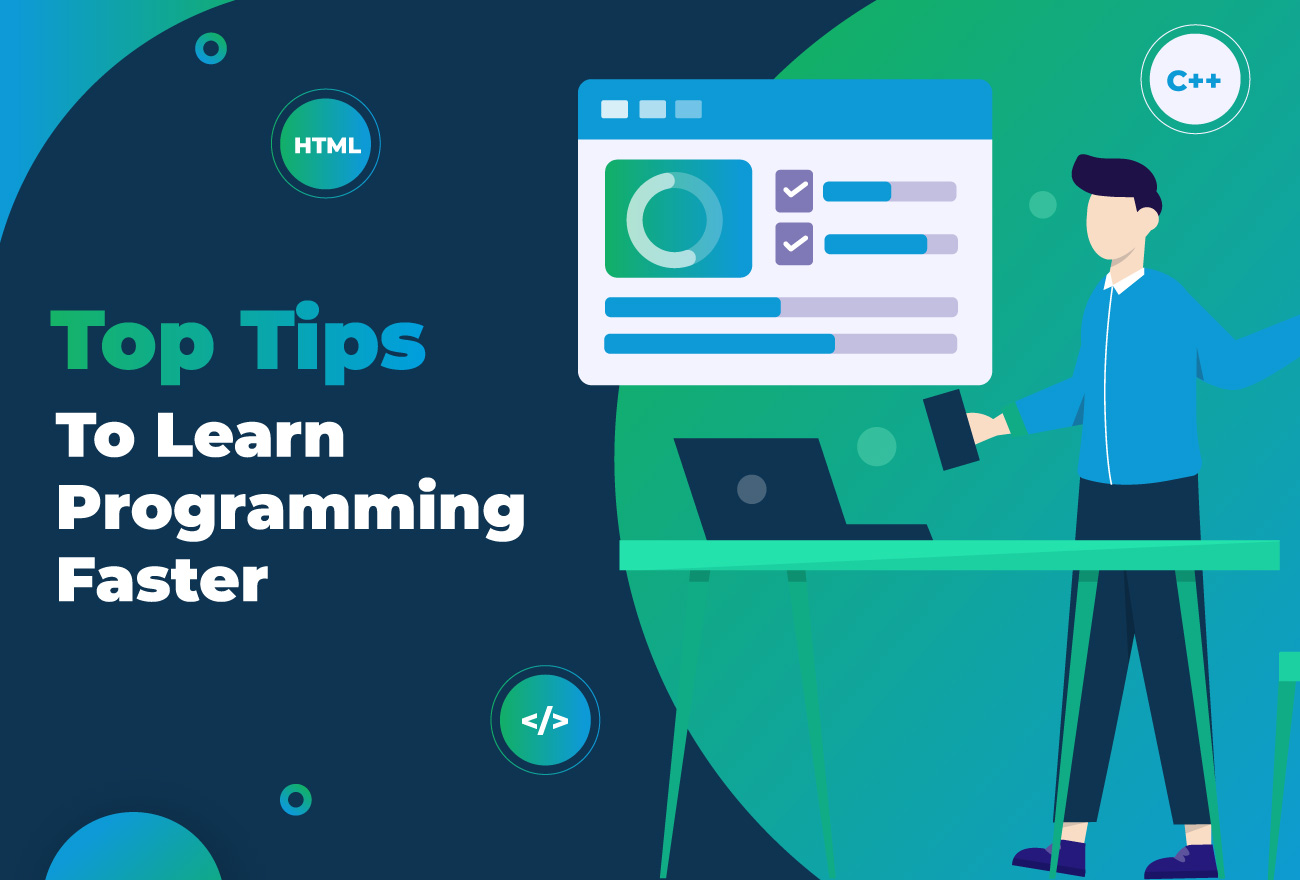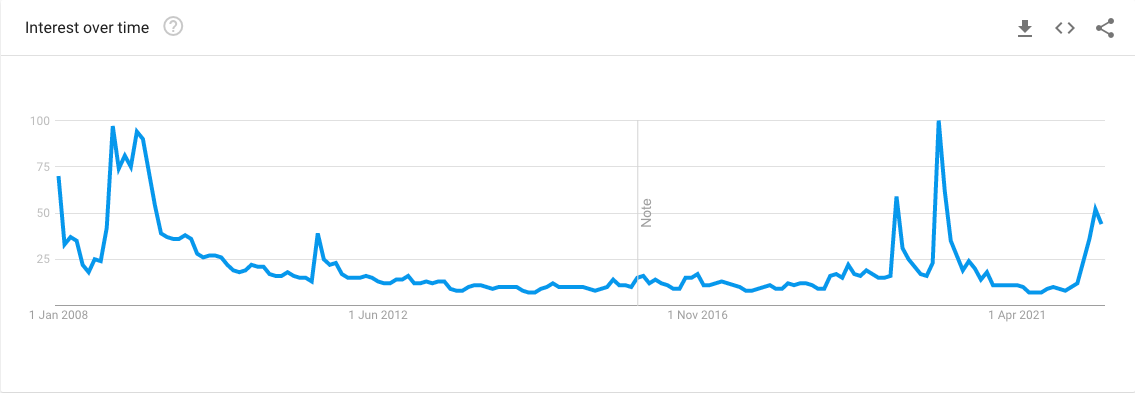By now, you’ll have noticed that there are murmurs of a global recession all over the internet. Nobody can predict an economic downturn with absolute certainty, but we can gain insight into the fear surrounding its plausibility.
Google Trends indicates that global interest in the term “recession” has grown quite significantly in recent years. In fact, the search volume was greater more recently than it was during the last recession in 2008.
Yet while the potential for economic downturn looms, one industry is unlikely to face an extreme dry spell – and that’s technology. In an increasingly digital world, nearly every business relies on the tech industry to operate. This means that there is abundant opportunity for programmers, no matter the global economic standing.
If you’re ready to fortify your skillset in preparation for a potential economic downturn, here are seven tips to help you learn to code as quickly and efficiently as possible:
Know the Terminology
When you are getting started with programming, there are many different terms and phrases to learn that can be daunting to beginners. But the quicker you learn the terms and coding jargon, the better off you will be when beginning your first steps down the programming path. For example, while most individuals won’t know what it means for a tool to accept logs from any Node.js app, you will need to. There are plenty of terms you will need to become proficient in to succeed as a programmer. And the best way to start familiarising yourself with complicated terms is to read through a glossary.
Practice, Practice, Practice
Reading, watching videos, and taking classes are awesome for the development of theoretical programming knowledge. But learning how to code requires a lot of practice. The more you practice you can fit in, the faster you can build up your skills. The only way to truly become a programmer is to program, so be sure to set aside a good chunk of time to do exactly that. Be warned, though: it won’t be effortless or easy. Trial and error will be a common method, and it will be frustrating at times. But the more you practice, the better you will get.
Utilize the Fundamentals
While the fundamentals might seem overly simple or obvious, they are still incredibly important to know and will be crucial to any coding projects you undertake. If you rush through learning the basics, you may pay for it later in your development as a programmer. Understanding the fundamentals will form the foundation for building more complex skills. An example is harnessing the benefits of pseudocode, a way to learn code in a more theory-based process. This will help you grasp the critical and logical thinking skills required for all the techniques in programming.
Don’t Be Scared to Ask for Help
Learning programming can be a painstaking process, and falling into a rut or struggling with something for long periods is not uncommon. Luckily, there is an extensive network and coding community at your fingertips. Instead of spending hours trying to solve a problem that you may never be able to, why not ask for help? There are several forums and message boards that are full of people willing to help you with your programming-related problems. But if you feel you need more consistent guidance as you develop your coding skills, HyperionDev offers expert and personal code reviews for every code you craft. We also have a student community Discord channel where budding programmers can connect and collaborate on code.
Watch Tutorials
Reading about how to do things or teaching yourself are suitable, but sometimes it’s easier to watch and learn. Online tutorials will help you visually witness the process as a whole, which you can then retain and replicate more effectively. Most of the time, teachers in these tutorials will also talk you through their problem-solving methods. This almost feels like you are working on the problem or issue together instead of tackling it alone. There are thousands of coding tutorials on YouTube, so there is a good chance you will be able to find what you need. One of the most effective ways to learn to code faster is to enrol in an online course. HyperionDev offers extensive and industry-aligned bootcamps for software development, data science, and web development.
Use Games
Learning to code through trial and error or watching tutorials works for many people, but they aren’t the only way to learn programming. If traditional methods aren’t keeping you engaged while you’re learning to code, you might want to look into using a game as a part of your learning process. There are several online games out there that will help you learn coding and programming while having fun at the same time. Many coding games also have different “levels”, making them accessible for all.
Don’t Rush Yourself
When learning something new, the last thing you want to do is rush through tasks or set too-high expectations. If you force yourself to rush, you might miss specific steps and hamper your learning process. Sure, you will have deadlines and requirements if you code or program for your job, but when you are learning, feel free to take your time and truly understand what you’re doing before moving on to the next task. After all, the best learning happens when you’re enjoying the process.
We hope that these practical coding tips can help you learn programming more efficiently and reach your goals – whether those involve gaining a hobby or securing a career in code. If your goal is the latter, HyperionDev offers in-depth coding and coding bootcamps that will get you job-ready in as little as three to six months. Our online courses are designed to take you from beginner to job-ready, helping you enter the rewarding tech industry with confidence.
Editor’s note: This post was originally published on 23 August 2018 and has been updated on 09 June 2022.



